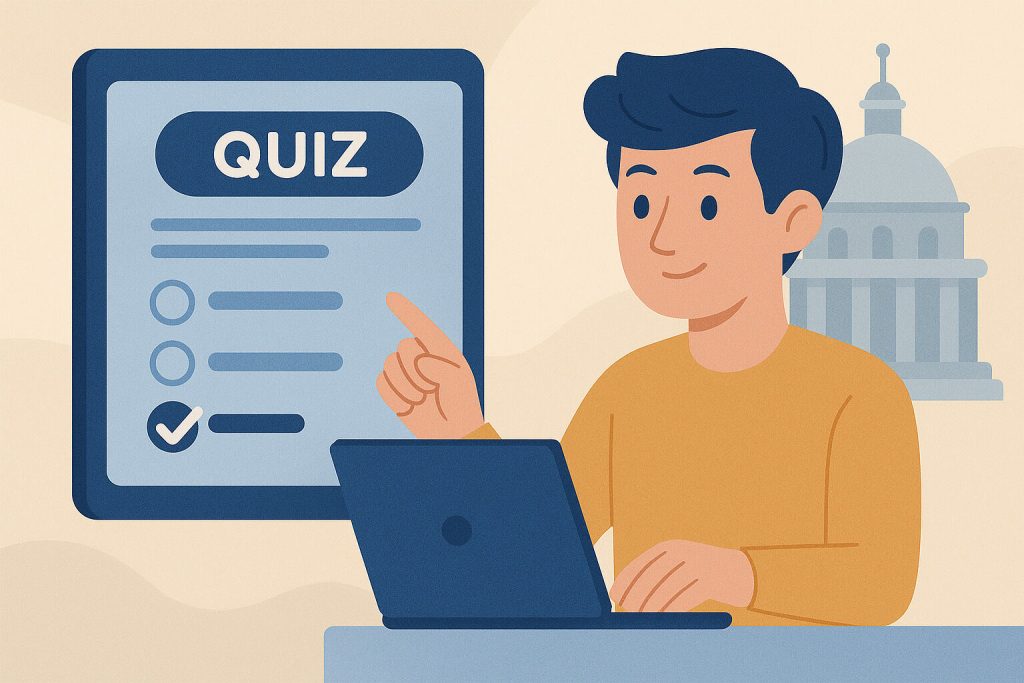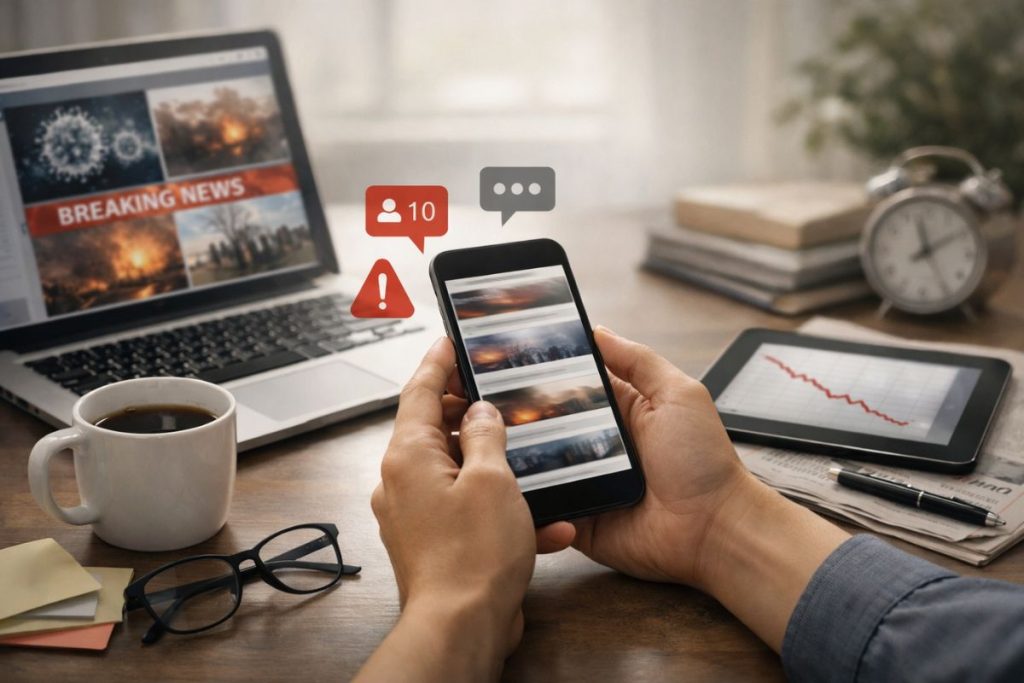
Gamified Learning Sparks Natural Interest in Public Topics
Understanding social issues doesn’t always begin in the classroom. More often, people learn through interactive experiences, especially when presented in familiar formats. In this context, online quizzes are not just entertainment—they’re effective tools for increasing awareness of public affairs.
When someone encounters a quiz on social media about laws, elections, or the structure of government, the act of clicking and answering becomes the first step toward deeper engagement. Often created using a quiz generator, these interactive tools transform complex topics into accessible experiences. Instead of forced study, knowledge is delivered in a way that feels casual—quick, simple, and inviting. This helps lower the barrier to understanding basic government concepts.
For instance, quizzes asking “What services does your barangay provide?” or “How familiar are you with your local government’s powers?” may seem ordinary, but they prompt users to reflect on their personal experiences and connect them to broader knowledge.
Accessibility Bridges Knowledge Gaps in Civic Matters
Not everyone has the opportunity to engage in formal discussions about government. Online quizzes provide an open, equal platform for anyone interested—from students to working professionals. The quiz format is easily accessible on a phone or computer.
In places where civic education is lacking, interactive quizzes can serve as a starting point. When questions are easy to understand, offer clear answers, and sometimes brief explanations, users gain confidence in their own knowledge—paving the way for deeper civic engagement.
Take voter rights quizzes, for example. A simple five-question quiz that educates a user about their voting rights can inspire them to be more critical and aware during elections. Not because they were forced to, but because they understand the importance of their role in society.
Instant Feedback Reinforces Civic Curiosity
One of the best aspects of online quizzes is instant feedback. When a question is answered, and the correct answer is shown immediately, users learn in the moment. This quick feedback acts as positive reinforcement—not just for knowledge but also for interest.
If a user answers a legal question incorrectly and sees a short explanation, the information tends to stick—especially when it relates to their daily life or personal experiences.
For example, if a user misses a question about who approves the city budget, they don’t need to read an entire government manual. With just a minute of interaction, they walk away with new understanding.
Content That Adapts to User Experience Deepens Impact
Another reason online quizzes are effective in promoting civic understanding is their ability to match the user’s experience. Some quizzes are designed for first-time voters, while others cater to more experienced community participants.
Varying levels of difficulty and follow-up content help sustain interest. After completing a quiz about a mayor’s powers, a user might be prompted to learn more about local governance. This invites them to continue exploring, at their own pace.
The content isn’t pushed—it invites the user to dive deeper on their own terms. This kind of self-guided learning has proven effective in youth education and can also be applied to civic education for all ages.
Encouraging Civic Identity Through Relatable Topics
In a democratic society, it’s vital for citizens to identify with their role in governance. Quizzes that address local laws, rights, and responsibilities help make the idea of government more tangible and relatable.
When questions are rooted in daily life—like “What can you do if your barangay service is unsatisfactory?”—people begin to see how government functions affect them personally. It becomes more than just a concept—it becomes part of reality.
This nurtures a person’s civic identity. They are no longer just observers of news or followers of policy. They become active participants—from understanding to action.
Group Quiz Sessions Promote Community Learning
Civic learning doesn’t always need to be solitary. Quizzes can also be used in group settings where people learn together. In classrooms, youth groups, or even family gatherings, answering questions about government becomes a springboard for discussion.
A question about the vice mayor’s role or how ordinances are passed often leads to rich dialogue. These exchanges not only add knowledge but also deepen social connections.
Using quizzes as the starting point for group learning is often more effective than traditional lectures. The value comes not just from the questions, but from the shared insights and personal stories that follow.
Measurable Metrics Help Gauge Awareness Trends
One advantage of online platforms is the ability to measure impact. Analytics reveal which questions are commonly answered correctly—or incorrectly—guiding educators and community leaders on what to emphasize next.
For example, if most users get legislative approval processes wrong in a 10-question quiz, that indicates a content gap. It’s an opportunity for targeted educational interventions.
The feedback loop also reveals engagement trends. When more users start and finish a quiz, it signals growing interest. These metrics are essential for planning future civic programs.
Repetition Through Quizzes Supports Retention
Repetition has long been known to aid learning—and civic education is no different. Taking multiple quizzes on various aspects of governance helps build a stronger knowledge base.
A user may begin with a basic quiz on the three government branches, and over time, progress to more complex topics like the national budget or impeachment. Every attempt—whether correct or not—adds to the learning process.
The format’s simplicity means it doesn’t feel overwhelming. With just five minutes a day, anyone can improve their understanding of topics that once seemed intimidating.
User-Generated Quizzes Build Deeper Engagement
Platforms that allow users to create their own quizzes empower deeper learning. When a teacher, student, or community leader designs questions, they are encouraged to research and clarify their ideas.
This is not passive learning—it’s active involvement. Users become content creators, deepening their connection to the material and to their audiences. A barangay leader, for instance, could use an online quiz to educate constituents about local ordinances.
These grassroots efforts often have local context, making the message more authentic and resonant. Civic understanding becomes more meaningful when the questions come from the people themselves.
Stronger Public Awareness Starts with Small Actions
Boosting civic understanding doesn’t always require grand campaigns. Sometimes, a single quiz can spark awareness of one’s role in society. One question can lead to many more.
When education comes in a familiar, accessible, and enjoyable form—learning is more likely to happen. Online quizzes are bridges from apathy to engagement. They don’t replace formal education, but they can reignite civic interest.
With improving technology and internet access, the opportunity is here. All it takes are small steps with big impact—one question, one answer, one beginning.


